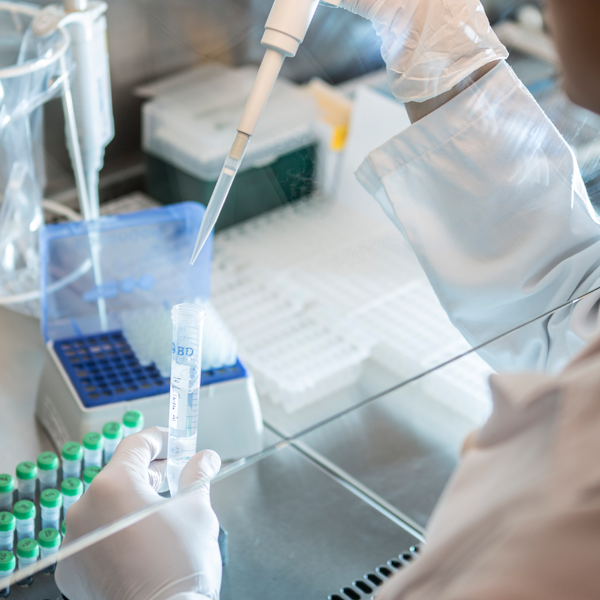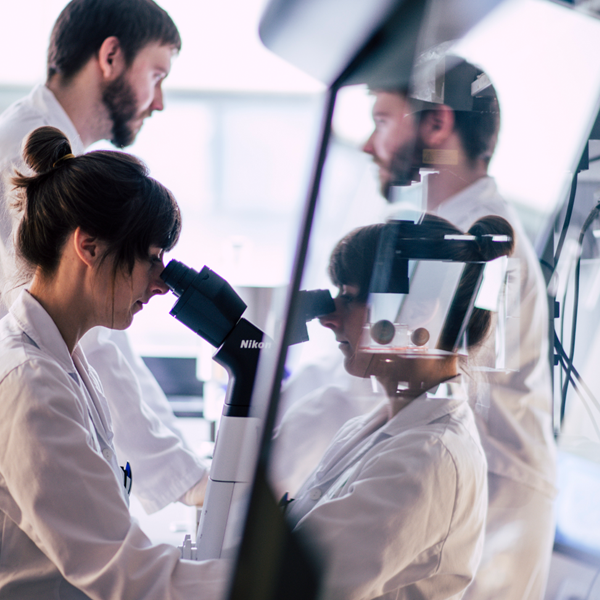-
Die Universität
- Herzlich willkommen
- Das sind wir
- Medien & PR
-
Studium
- Allgemein
- Studienangebot
- Campusleben
-
Forschung
- Profil
- Infrastruktur
- Kooperationen
- Services
-
Karriere
- Arbeitgeberin Med Uni Graz
- Potenziale
- Arbeitsumfeld
- Offene Stellen
-
Diagnostik
- Patient*innen
- Zuweiser*innen
-
Gesundheitsthemen
- Gesundheitsinfrastruktur
Molecular Medicine and Inflammation
Molecular medicine is evolving to an important scientific and clinical discipline with the aim to unravel the causes and mechanisms of disease, employing state-of-the-art technologies and to develop novel therapies. Inflammation, i.e. the complex response of a body or organs to harmful stimuli, is an integral part of molecular medicine. Accordingly, the mission of the Doctoral School Molecular Medicine and Inflammation is to address challenges and innovative research questions in these areas within a plethora of projects accompanied by an excellent teaching program to provide students with all needed knowledge and skills. Applicants must hold a Master´s degree or equivalent in Medicine, Chemistry or Life Sciences. As the language used for teaching and preparation of the thesis is English, outstanding English skills are required.
Scope
Recent years have witnessed a tremendous growth in novel insights into disease mechanisms. This was partially caused by technological developments such as next-generation sequencing, advanced single cells technologies, induced pluripotent stem cells (iPSCs), CRISPR/Cas9, 3D culturing models, bioinformatics tools, imaging technologies, and many others, which are revolutionizing biomedical research. However, despite this progress the causes and mechanisms of many diseases remain incompletely understood or are even entirely unknown at present. To this end, molecular medicine is a promising scientific discipline, as it represents a comprehensive interdisciplinary field to investigate the causes and mechanisms of disease in detail. The Medical University of Graz offers unique opportunities and an outstanding infrastructure for conducting such translational research, as the aforementioned technologies are available and established at various facilities with close links to clinical partners. Hence, projects within the Doctoral School Molecular Medicine and Inflammation are not confined to certain areas, but instead cover a wide range from basic research to translational approaches as well as applied clinical research. The teaching program is cutting-edge and closely related to the PhD program Molecular Medicine. Many lectures and courses overlap and students are exposed to experienced teachers in medical subjects and in natural sciences enabling them to acquire both the needed knowledge and skills to address challenging research tasks. After completion of the doctoral thesis students should have all expertise and prerequisites to start a career in academia or to pursue other professional goals. Overall the scope of this Doctoral School is to provide insights into current medical and biological problems, which may eventually enhance conditions of humans with diseases by an improved understanding of disease mechanisms, the identification of involved pathways and the development of clinically applicable biomarkers, which may be useful in personalized medicine applications.
Speaker
Assoz. Prof. Priv.-Doz. Dr.
Andreas Prokesch
Andreas Prokesch

Deputy Speaker
Univ.Ass. Priv.Doz. Dr. med. univ.
Katharina Leithner, PhD
Katharina Leithner, PhD





